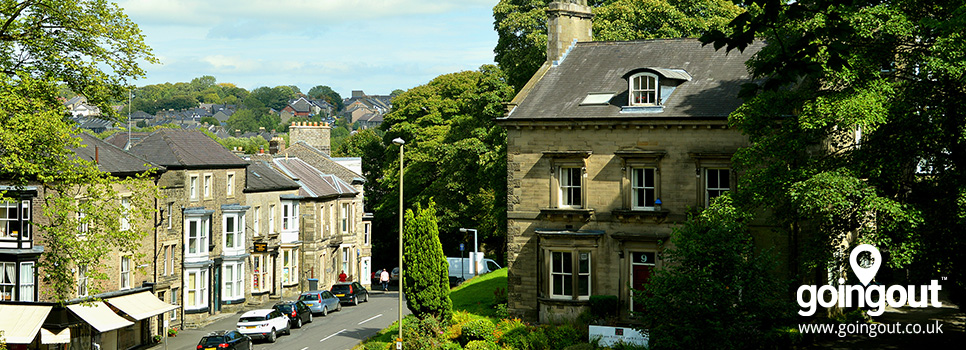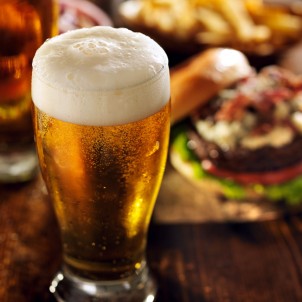Discover the best pubs & restaurants in Buxton
![]() Town/City Name
Town/City Name
Buxton
![]() County
County
Derbyshire
![]() Population
Population
22,215

 About Buxton
About Buxton
Buxton is literally the highest market town situated in England with a height of around 1,000 feet above sea level. This is known as a spa town. Buxton, together with other places, forms the High Peak’s borough and the local government district.
In 2011, the population of Buxton was around 22,115, and a lot of structures and places which are considered well-known can be found in this town. Buxton is twinned with Bad Nauheim, Germany, and Oignies, France.
There are a lot of tourist destinations when going out in Buxton. Some of these famous ones are the Poole’s Cavern, Buxton Opera House, Pavilion Gardens, Buxton Museum and Art Gallery, and Chatsworth House.
Although there are several places you can visit in Buxton, maybe one of the most well-known is Poole’s Cavern. This is a limestone cave which is two million years old. Believed to have been visited by Mary Queen of Scots, this cave can be reached by walking some steps from Buxton’s centre. This cave is said to be a place where people from the Roman period and the Bronze Age lived.
Despite being a small town, restaurants in Buxton offer worldwide cuisine from different places like America, Italy, Nepal, Thailand, and Japan, among others. When it comes to drinking, there are numerous pubs in Buxton that you can visit to have a taste of the best and traditional ales the town can offer. These pubs are situated almost at every single area in town, so guests and locals do not have a hard time finding one they can relax at or visit during day or night.
The famous people who came from or who live in Buxton include Stanley Adshead, Karen Bradley, John Hilton, John Hudson, and English footballer Tommy Mason.
 Places to eat in Buxton, Restaurants in Buxton
Places to eat in Buxton, Restaurants in Buxton
 Places to drink in Buxton, Pubs and Bars in Buxton
Places to drink in Buxton, Pubs and Bars in Buxton
 A brief history of Buxton
A brief history of Buxton
Where the name Buxton came from originally is unknown up to now. Some say it came from the Old English for Rocking Stone or for Buck Stone.
When Dukes of Devonshire developed Buxton in the late 18th century, the town started to gain importance. The waters in the town together with their believed healing properties drew people to visit the town.
Lismore Fields is where the first people who occupied Buxton lived. It was 6,000 years ago. In 1984, the Stone Age settlement was discovered, and remains of Mesolithic roundhouses and Neolithic longhouses were recovered.
During the Roman times, Aquae Arnemetiae which is a settlement was developed. During this period, Batham Gate also existed.
Buxton became part of the Crown estate of the Duchy of Lancaster in 1153. Later on, Buxton’s pring was announced to be a holy well in honour of St Anne. This specifically happened in 1460, and in 1498, a chapel was built.
Buxton was known as a spa town because of the geothermal spring in the area. It has also been known because Erasmus Darwin recommended the water in the town to Josiah Wedgowood. Because of this, the family frequented Buxton and recommended it to their other friends.
Canadian and British troops occupied Buxton during World War I, and it served as their base. Additionally, an underground facility where bombs were stored in the Second World War was also located in Buxton – the RAF Harpur Hill.
 Popular things to do in Buxton
Popular things to do in Buxton
- Visit the Green Man Gallery - https://www.thegreenmangallery.com/
- Ride a boat on the Boating Lake in the Pavilion Gardens - https://www.parkwoodoutdoors.co.uk/centre/the-pavilion-gardens
- See a show at Buxton Opera House - https://buxtonoperahouse.org.uk/
- Enjoy treetop adventures at Go Ape Buxton - https://goape.co.uk/locations/buxton
- Explore the Peak District landscape millions of years ago at Buxton Museum - https://www.derbyshire.gov.uk/leisure/buxton-museum/buxton-museum-and-art-gallery.aspx
 Free things to do in Buxton
Free things to do in Buxton
- Enjoy a day at Solomon's Temple – https://buxtoncivicassociation.org.uk/why-did-we-save-grin-low-tower-aka-solomons-temple/
- Be in a dramatic space at The Devonshire Dome - https://www.devonshiredome.co.uk/
- Appreciate contemporary art at The Green Man Gallery - https://www.thegreenmangallery.com/
- Know more about Buxton in Buxton Visitor Centre and Crescent Experience - https://buxtoncrescentexperience.com/
- Visit stalls at Buxton Markets CIC - http://www.buxtonmarkets.co.uk/
 Great for kids in Buxton
Great for kids in Buxton
- Have fun at The Buxton Mystery Treasure Trail – https://www.treasuretrails.co.uk/things-to-do/derbyshire/buxton
- Stroll through trails at Poole's Cavern & Country Park - https://poolescavern.co.uk/
- Enjoy soft play at Little Rascals - https://littlerascalsplay.com/
- Look at precious minerals at Blue-John Cavern and Mine - https://www.bluejohn-cavern.co.uk/
- See historic works at Speedwell Cavern - http://speedwellcavern.co.uk/
 Great for dogs in Buxton
Great for dogs in Buxton
- The Old Clubhouse
- Upstairs at Charlotte’s
- The Old Sun Inn
 Dog friendly bars
Dog friendly bars
- Buxton Tap House
- The Cheshire Cheese
- Redwillow
 Dog friendly restaurants
Dog friendly restaurants
- Caffe Nero
- Coda Vinyl Café
- 53 Degrees North
 Did you know?
Did you know?
Even though Poole’s cavern was only opened to the public in 1853, Queen of Scots Mary Stuart was believed to have stepped on the cavern in 1582. This gives the cavern a somewhat royal connection.
There is a lot of snow in Buxton, too, because of its geographical location. Again, it is around 1,000 feet above sea level, so it is England’s highest market town.
 The hidden gems of Buxton
The hidden gems of Buxton
There is a black lagoon in Buxton. This was originally called the Blue Lagoon of Buxton, but because people still dive and explore the waters despite the toxic elements in it, the people decided to dye it black. They said that the lagoon was deceiving due to its color.
 Unique to Buxton
Unique to Buxton
Buxton has the largest glass window which is stained in the whole of Britain. This is the barrel-vaulted canopy in the Cavendish Shopping Arcade.
In addition, the replacement of the Corbar Cross on Corbar Hill in 2011 has a long history. This was initially a gift to the Roman Catholic Church in the year 1950, but it was replaced in the 1980s. However, there was a protest against child abuse in 2010, so it was chopped down. This happened when Pope Benedict XVI visited the UK. The protest happened at Catholic St Williams School. But, again, it was replaced in 2011.
 find your venue
find your venue feature your venue
feature your venue








